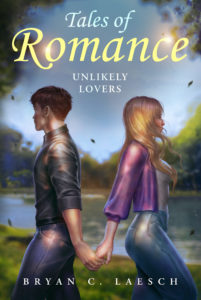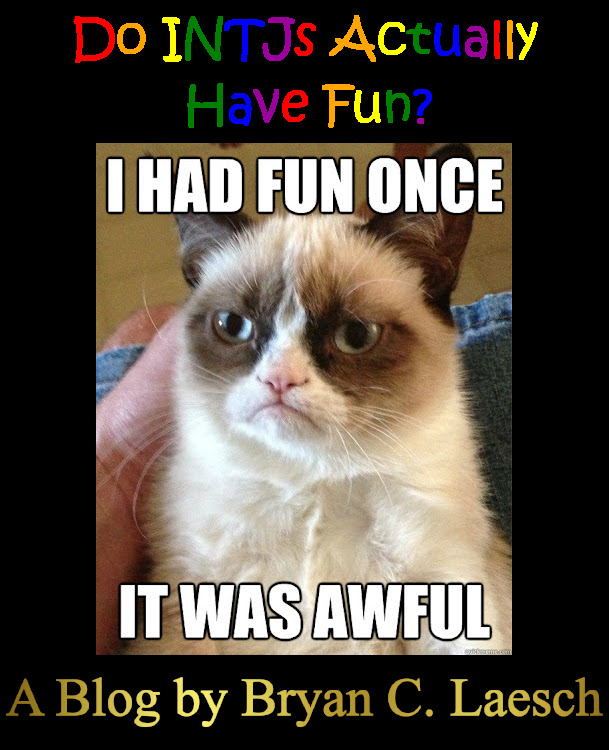Good news, everyone!
So, a few weeks back, I went bowling with some of the people in my young adults group. “My friends”, you could call them. They seemed to have the time of their lives, while I did not. Why? Well, I’ll tell you that while I would prefer to go bowling than not go bowling, I was very disappointed with my performance that night, hence why I say I didn’t have fun.
Now, this is something I’ve noticed before. Years ago when I used to shoot in a traditional archery league, occasionally the boss’ wife would walk by and ask me if I was having fun. I’d often lie and say, “Yes”. Again, it was a lie because that night—or those nights—I wasn’t shooting well. So, that would seem to imply that in order for me to have fun (at an activity that requires skill), I need to do well at it, because as I have also noticed, when I engage in an activity that requires no skill, enjoyment comes a lot more easily. But notice, I said “enjoy” and not “have fun”. Now, while I don’t know if this quality affects other INTJs, I’m inclined to believe it does as no other personality functions quite like us. So, the question has to be asked: do INTJs actually have fun? Let’s find out.
I Did It My Way
As I mentioned above, when it comes to any skill-based activity, whether that be bowling, archery, video games, etc, the only time I’m actually having fun is when I’m doing well. That is to say, when things are going my way. Does this mean that all of an INTJ’s fun is contingent on doing well and that INTJs are actually pretty sore losers? Well, no.
 I would argue that INTJs can definitely lose gracefully, especially if the contest they’re in is epic, but, in the examples I gave above, bowling with my friends and shooting archery, neither was an “official contest”. It didn’t matter who won or lost. Both events were purely for the fun of it. So, what gives? Why wouldn’t an INTJ just enjoy themselves in such situations regardless of their performance? Well, it’s because INTJs are perfectionists and we’re trying to measure up to an ideal.
I would argue that INTJs can definitely lose gracefully, especially if the contest they’re in is epic, but, in the examples I gave above, bowling with my friends and shooting archery, neither was an “official contest”. It didn’t matter who won or lost. Both events were purely for the fun of it. So, what gives? Why wouldn’t an INTJ just enjoy themselves in such situations regardless of their performance? Well, it’s because INTJs are perfectionists and we’re trying to measure up to an ideal.
Due our Ni (introverted intuition), we know what a good performance from ourselves looks like. And thanks to our Fi (introverted feeling), we won’t allow ourselves to settle for anything less. Now, when I tried to explain to a friend of mine why I didn’t have fun that night, he tried to rationalize it. He asked questions like “How often do you really go bowling?” and said, “If you want to do better, then practice.” But here’s the problem—I know I’ve done better without practice. I know I’ve done better without trying. There was a time eons ago when I scored a 115 with three strikes in a row, which is a respectable score for a non-bowler. I did better once just goofing my s#it, and worse when I was using proper strategy, technique, and gear. Weird, I know, but the point is that I know I can do better because I have done better.
Even in times when there’s no one to compete with, INTJs are always competing against themselves. We’re always trying to match up to our own standards. But the real kicker is that even if an INTJ isn’t having fun, we can still be enjoying ourselves. That’s right: enjoyment and fun are two different things. But what on earth is the difference?

Fun VS Enjoyment
So, what exactly is the difference between fun and enjoyment? Well, before I get to that, I just want it known and agreed upon that INTJs do have hobbies. In fact, I’ve written a whole blog about the sort of hobbies an INTJ is likely to have. However, the reason why I mention this is because not all hobbies, especially those of an INTJ, are for fun. In fact, some of them are specifically for enjoyment. So, now that that is covered, what is the difference between fun and enjoyment?
Well, according to the dictionary, there isn’t much of one. In fact, depending on the dictionary you use, they might use one to help define the other. But as far as I’m concerned, “fun” is more about “diversion” and “frivolity”, whereas “enjoyment” is more purpose-built. If you enjoy something, it gives you satisfaction and isn’t just a temporary state of happiness. Things that are fun make you happy, but they make you happy in the moment. They can make you happy after the fact when you remember the fun, but you won’t be as happy now as you were then. As a result, you’ll want to chase the feeling—chase the high—constantly trying to hold onto something you can’t. Satisfaction however is long lasting. It gives you a sense of accomplishment, pride, or honor. And it’s something you can build off, either using its success to propel you into other interests or to push you deeper into a specific interest. For instance, you may spend some time learning Italian and enjoy doing so. As a result, you either choose to learn more Italian or you choose to learn another language. But if you’re at a party with your friends and you’re having fun, you can’t use that experience and construct something bigger or grander. The fun you have in that moment is only in that moment and the only way to get it back, is to relive it as closely as possible.
Basically, fun is temporary happiness, while enjoyment is long-lasting satisfaction. It’s the difference between saying, “That was fun! We should do it again!” and “Although, I didn’t have fun, I still found the experience worthwhile”—we enjoyed learning from the experience. But, let’s back up a second as I just said something interesting: how can an experience be worthwhile if it wasn’t fun? Or, how can an experience be enjoyable if it wasn’t fun? Well, the best way to explain it is with the sentiment “I didn’t like that, but I’m glad I tried it”. For instance, a few years back I had my 10-year high school reunion. I was super excited for it, but it turned out not to be all that much fun. But while I didn’t have fun that night and probably could’ve done without it, I still found the experience valuable as I learned something from it. The knowledge, wisdom, and insight I garnered from the experience made the lack of fun worth it.
This is perhaps one of the character traits that makes INTJs so different from everyone else. Because Ni and Se (extraverted sensing) are where they are in our function stack (dominant and inferior, respectively), this means that any experience we have (Se) serves our goal of trying to understand the world and unlock the greatest secret (Ni). What this means is that INTJs don’t, or in some cases won’t, pursue fun for the sake of fun. If we don’t stand to learn anything from an experience, we are not likely to indulge in it, hence why I say an INTJ never does anything solely for the fun of it. Everything we do has a purpose, either so we may learn or accomplish something.
Don’t get me wrong, fun is fun, and we like to have it, but we value enjoyment just as much as fun. In many cases, we value it more than fun. This is why we’re always working away at something and constantly keeping our minds busy. This is why we’re always learning new things, even if it isn’t fun at the time. But, that then asks an interesting question: when does an INTJ actually have fun?
When Does an INTJ Have Fun?

So, when do INTJs actually have fun? Usually when they’re alone or when there’s no ideal to match up to. Without the pressure of needing to be in competition with others or without the pressure of needing to seem perfect in front of others, we can allow ourselves to just be who and what we truly are at that moment. We can relax. Ni isn’t looking for perfection and Fi doesn’t care what standard is matched. Without the constant self-reflection that we’re usually under, that means the logic part of our brains is turned off too as Te usually serves Ni in such cases. Thus, in these situations, Se is in control, and since Se is all about the experience, INTJs can let themselves go and just be—just experience what is happening. But! It is possible for the opposite to be true, too.
When an INTJ is in such a state of Zen where Ni, Te, and Fi are working effortlessly and being satisfied, the enjoyment of the experience (Se) is all that matters. But either way, when Se gets to be Se without the other three taking precedence, that’s when an INTJ can really cut loose. Personally, I experience such times when I’m out on a bike ride, out for a walk, out for a ride (on my motorcycle or driving my car), or when playing video game and everything is going right. (Again, often our fun is contingent on doing well.) But I also experience such times listening to music, watching a movie, or reading a book. In those sorts of situations, who I am doesn’t matter because it’s about immersing myself into the experience. And that is fun.
But there are times when an INTJ actually hates fun. There are times when fun isn’t fun, and these times are usually when we’re being pressured into doing something we don’t want to do.

“Come have fun with us! Or else!!!”
So, why on earth would anyone pressure someone into doing something they don’t find fun? Because the people doing the pressuring think the something is fun and don’t seem to understand that peer pressure is exceedingly disrespectful.
I usually suffer such attempts from my young adults group and occasionally from my extended family. My extended family hasn’t done anything in recent memory to irritate me, but going back to the bowling excursion with my young adults group…ugh.

So, my young adults group is made up of the quintessential “white people”. That is to say, when in groups at relaxed events, they have a habit of dancing in a tacky fashion and singing along with whatever song is playing. Now, I don’t know what bowling is like in our countries, but in the US, when you go to a bowling alley, they always have music playing. It’s hard to describe because it’s made up of dance songs, pop songs, the top 40, etc. Rarely is it ever death metal. Anyway, some song came on—I have no idea what it was, but I’m pretty sure I hated it—and my “friends” start singing along with it. I’m up to bowl. I roll my two abysmal balls and I go to sit down. One of my “friends” is singing the song enthusiastically, even using a make-believe microphone in his hand, and as I go to sit down, he looks at me like a crazed maniac and says, “Come on, Bryan!” and shoves the non-existent microphone in my face. Obviously, I don’t indulge because as I said, I’m pretty sure I hated the song and also because I didn’t even know what it was. But I also didn’t join in because I was disappointed in my bowling performance. Even if it was a song I knew, I wouldn’t have sung. And this is one of the things that really burns my @ss.
Now, I know things could be worse—I could not have friends. But I really don’t appreciate being pressured into people’s reindeer games. It’s not even a good mood versus bad mood thing—it’s just something I don’t want to experience. It’s a very strange feeling when the people around you don’t seem to know that “no” means “no”.
Peer pressure doesn’t work on INTJs. We’re too individualistic. If we don’t like what the group is doing, we do our own thing. We’ll even leave if we deem it necessary. As a result, it can be very exhausting and disheartening when people you respect don’t seem to respect you. An INTJ would never pressure someone into doing something they don’t want to do. I don’t think I’ve ever tried to convince someone that something is fun after they’ve turned their nose up to it. As I said, it’s disrespectful. But, that’s another one of ways that INTJs differ from everyone else. Instead of giving into peer pressure, we get pissed and leave. Consequences be damned. Fun is not fun when you’re forced to have it.
Conclusion
So, what have we learned? Simply that INTJs do not have fun…like everyone else.
Since posting parts of this blog on my Instagram, I have gotten responses from a few INTJs who have admitted to having pointless fun or liking to have it. Or, they said that having fun isn’t a waste of time. True, all work and no play do make Jack a dull boy, but play does not need to be pointless or simply for s#its and grins. Fun can have a point, and of all the types, INTJs are the most likely to make sure their fun has a point. And what’s wrong with that? That’s right—not a thing. So take your meaningless fun and piss off!
But what do you do for fun? Do you like meaningless fun? Let me know in the comments below.
Thank you for your patronage.
Follow me on social media:
FB: https://www.facebook.com/bryanclaesch
IG: https://www.instagram.com/bryanclaesch/
Twitter: https://twitter.com/BryanofAllTrade
Pinterest: https://www.pinterest.com/bryanclaesch/

Depende da diversão e com quem estou me divertindo. Mas de maneira geral, gosto de me divertir sozinha, pois assim, não preciso ceder o tacar o dane-se toda vez que for pressionada.
Sounds like you and your friends might have had misaligned intentions for the event. If someone says, “Let’s go to happy hour” or “let’s go clubbing,” it’s usually pretty easy to predict the fun-loving vibe everyone will be going for, but other events are more “nebulous,” more dependent on the personalities involved.
I think that’s where personal preferences come in, whether you lean towards seriousness or playfulness in ambiguous situations. Having to strike a balance between everyone’s individual preferences is one reason it’s so difficult to cultivate a fun and comfortable environment for every person in a social group. No one should feel pressured to conform in the name of “fun,” and I’m sorry you were made uncomfortable. That being said, it sounds like your friends were trying to include you, not be disrespectful. Respect goes two ways, so overconstraining a group social situation to suit your individual preferences can also come across as controlling and disrespectful to others’ needs. It doesn’t sound like you verbalize any of these thoughts, but if you wanted to, one rule of thumb you could use is that each person gets three things, three constraints or requests they can make of everyone else in the group. If anyone goes beyond that, they run the risk of being a “wet blanket” and damaging impressions of both themselves and the event.
That’s a rather insightful method of ruling a social dynamic.
Do you mean ‘ruling’ as in being domineering? The idea is to enforce it both ways, so you’d also have boundaries for how much other people demand of you.
P.s. It would help with the comments if there was some sort of email notification for when a comment was approved or replied to. I had to check back.
No, it’s as in “governing”.